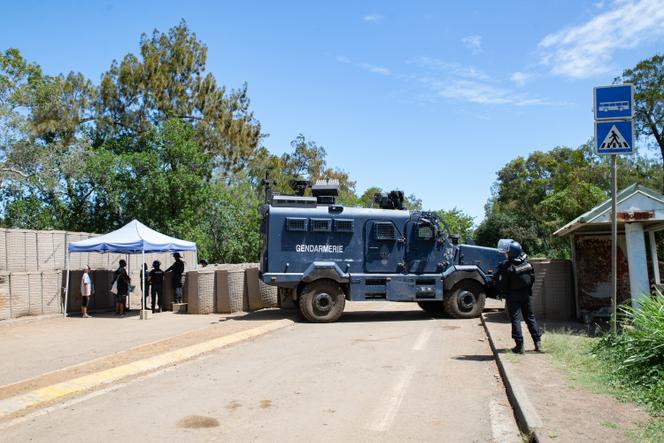


Taken by surprise at the scale of the violence that ripped through the archipelago four months ago, the French government has taken measures to ensure that the events of May 13 will not reoccur. The curfew, which had eased in recent weeks, has been tightened and, in the days up to Tuesday, September 24, New Caledonians are forbidden to go out between 6 pm and 5 am. Gatherings and the sale of takeaway alcohol are also prohibited.
"There will be 6,000 police, gendarmes and soldiers in place. That's seven times the number of officers we had on May 13," said Théophile de Lassus, director of the French High Commissioner's office in New Caledonia. There will also be clearance detachments at hand to eventually remove roadblocks.
According to the authorities, the community in Saint-Louis – where two men were killed on Thursday during a gendarmerie intervention – and Noumea's more troubled neighborhoods "will be the focus of particular attention." But de Lassus said that "there is nothing to suggest that there will be a resurgence of violence on September 24."
In 2004, the archipelago's public holiday was officially named Fête de la citoyenneté (Citizenship Day). It marks the day when France took possession of New Caledonia on September 24, 1853, and Admiral Auguste Febvrier-Despointes raised the French flag for the first time in Balade on the east coast of Grande Terre, New Caledonia's main island. For many years, the day had been celebrated as New Caledonia's "attachment to France," a term that skirted the question of colonization. With the emergence of pro-independence demands in the 1970s, the commemoration was contested. In 1974, a demonstration against it was suppressed, and from then on, the pro-independence movement has called it a "day of mourning for the Kanak people."
The independentists have not called for demonstrations on Tuesday. Only the traditional ruling chiefs of the Inaat Ne Kanaky association are set to make a "unilateral declaration of sovereignty" over the district at a ceremony to be held on the island of Maré.
But calm remains extremely fragile in the archipelago, and tensions were rekindled following the deaths of Samuel Moekia and Johan Kaidine on Thursday, which has brought the number of fatalities to 13 since the start of the violence. Clashes with law enforcement have taken place in Nouméa's more problematic neighborhoods and its suburbs. "We were dealing with groups of four or five people, 15 at the most. Nothing like the thousands of young people who took to the streets on May 13," said Jean-Marie Cavier, the territorial director of the national police force. Anger has also been growing outside the city and in Bourail, the large traditional hut that marks the entrance to the Deva terrain that belongs to the South Province, a local authority headed by loyalist leader Sonia Backès, was torched.
You have 22.04% of this article left to read. The rest is for subscribers only.
